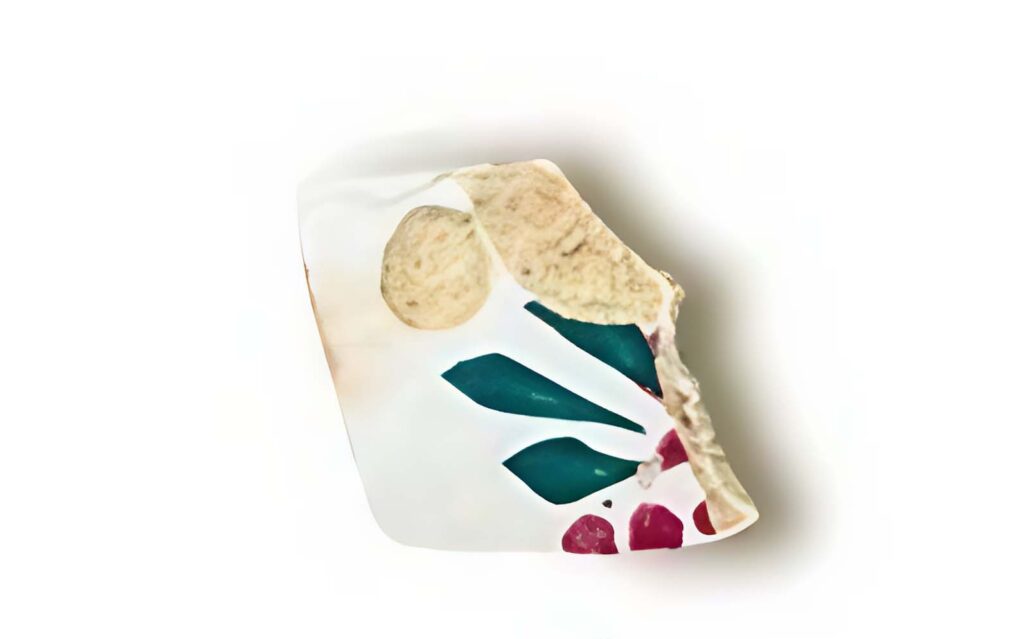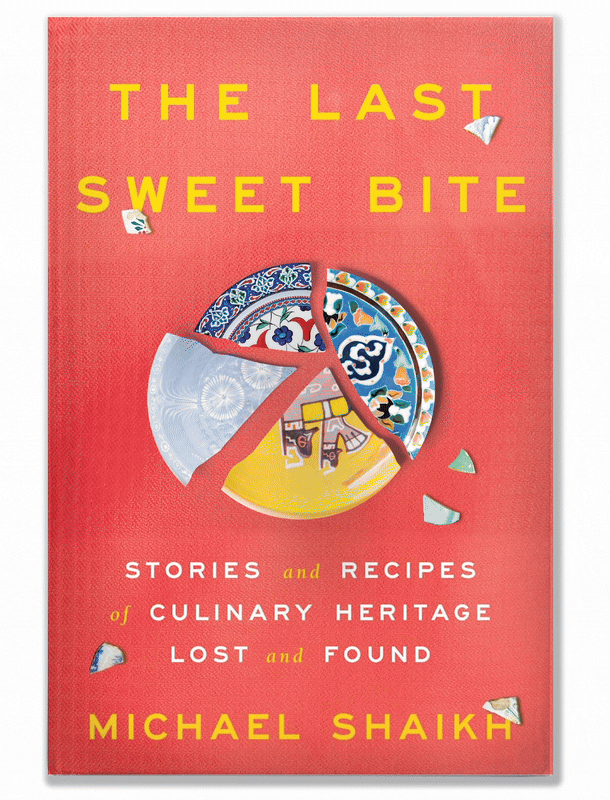
The LAST SWEET BITE
A powerful and heartwarming exploration of cuisine in conflict zones, The Last Sweet Bite highlights the heroic persistence of people struggling to protect their food culture in the face of war, genocide, and violence.
From the Publisher
War changes every part of human culture: art, education, music, politics. Why should food be any different? For nearly twenty years, Michael Shaikh’s job was investigating human rights abuses in conflict zones. Early on, he noticed how war not only changed the lives of victims and their societies, it also unexpectedly changed the way they ate, forcing people to alter their recipes or even stop cooking altogether, threatening the very survival of ancient dishes.
A groundbreaking combination of travel writing, memoir, and cookbook, The Last Sweet Bite uncovers how humanity’s appetite for violence shapes what’s on our plate. Animated by touching personal interviews, original reporting, and extraordinary recipes from modern-day conflict zones across the globe, Shaikh reveals the stories of how genocide, occupation, and civil war can disappear treasured recipes, but also introduces us to the extraordinary yet overlooked home cooks and human rights activists trying to save them. From a sprawling refugee camp in Bangladesh and a brutal civil war in Sri Lanka to the drug wars in the Andes and the enduring effects of America’s westward expansion, Shaikh highlights resilient diasporic communities refusing to let their culinary heritage become another casualty of war.
Much of what we eat today or buy in a market has been shaped by violence; in some form, someone’s history and politics is on the dinner table. The Last Sweet Bite aims to tell us how it got there. Weaving together histories of food, migration, human rights, and recipes, Shaikh shows us how reclaiming lost cuisines is not just a form of resistance and hope but also how cooking can be a strategy for survival during trying times.

“Michael Shaikh knows what our mothers and grandmothers have known for generations: that our recipes tell the stories of who we are so that we never forget. As a human rights investigator, he has witnessed how violence has changed recipes, cultures, and communities. The Last Sweet Bite tells the powerful and personal stories of the heroic home cooks fighting to keep their food—and their identity—alive.”
—José Andrés, World Central Kitchen
—Alice Waters, chef, author & food activist
“Through intimate stories of community and resistance, Michael Shaikh shows us how violence is erasing beloved food traditions, and how people are risking it all to save them.”
—Nathan Thrall, Pulitzer Prize-winning author of A Day in the Life of Abed Salama
“Michael Shaikh is an experienced human rights investigator with a knack for compelling storytelling. He is also a sophisticated guide who shows us how communities facing repression not only lose their political freedoms but also parts of their culture. His book is a deeply informed study and delicious adventure through culinary history.”
—Kenneth Roth, Former Executive Director of Human Rights Watch and author of Righting Wrongs
“From Japan to Afghanistan, the Czech Republic to China, Michael Shaikh takes readers on a vivid journey of cultural and culinary discovery. With the same care and curiosity he employed as a human rights investigator, he uncovers how food nourishes not just the physical body but how it enlivens memories, shapes identities, and carries hope from one generation to the next. A book of resilience for our times.”
—Rachel Martin, Award-winning journalist and host of Wild Card from NPR
“Food writing tends to celebrate traditional cuisines through the lens of capitalist consumption, without ever considering the violent histories behind what we eat. Not Michael Shaikh’s. The Last Sweet Bite digs deep to uncover the meaning of food for peoples during their darkest hours, whether in the face of cultural genocide, settler colonialism, civil war, or the US-led war on drugs. It is not just a book about food, but a rare and brilliant examination of the abuses of state power against marginalized cultures through the destruction of their culinary heritage. As such, it subtly illuminates the geopolitics of complicity and urges readers to ask ourselves how we are connected to the people whose food is on our plates.”
—Grace M. Cho, author of the National Book Award-nominated Tastes Like War
—Michael W. Twitty, James Beard Award-winning author of The Cooking Gene and Koshersoul
“Countless cultures around the world, past and present, endure the destruction of their identities and foodways. It’s important we learn how to celebrate and protect these diversities globally, by taking the time to learn from those cultures who have survived atrocities and attacks on their food systems—as well as those fighting to survive them right now. The Last Sweet Bite is a truly unique and crucial step in that direction. Much more than a typical cookbook, Michael’s experiences in regions marred by intense trauma show us not only the power of food but also the power of resistance embedded in recipes passed down through the generations.”
—Sean Sherman, Oglala Lakota and award-winning chef, author, and founder of The Sioux Chef and NATIFS.org
—Kirkus Reviews
— Booklist
Joy’s Harjo’s poem, “Perhaps the World Ends Here,” puts us around a kitchen table, a place of ceremony and sustenance, a place that braids the best and worst of our humanity. I often turned to Ms. Harjo’s work, particularly this poem, when I was writing The Last Sweet Bite, for motivation when tempted by complacency, for inspiration to take risks when I was afraid, and crucially, to listen (and re-listen) to what people were truly saying during interviews. The poem’s magic and truth are sprinkled throughout my book. So it seemed natural that its last words would become the title.
The world begins at a kitchen table. No matter what, we must eat to live.
The gifts of earth are brought and prepared, set on the table. So it has been since creation, and it will go on.
We chase chickens or dogs away from it. Babies teethe at the corners. They scrape their knees under it.
It is here that children are given instructions on what it means to be human. We make men at it, we make women.
At this table we gossip, recall enemies and the ghosts of lovers.
Our dreams drink coffee with us as they put their arms around our children. They laugh with us at our poor falling-down selves and as we put ourselves back together once again at the table.
This table has been a house in the rain, an umbrella in the sun.
Wars have begun and ended at this table. It is a place to hide in the shadow of terror. A place to celebrate the terrible victory.
We have given birth on this table, and have prepared our parents for burial here.
At this table we sing with joy, with sorrow. We pray of suffering and remorse. We give thanks.
Perhaps the world will end at the kitchen table, while we are laughing and crying, eating of the last sweet bite.
“Perhaps the World Ends Here,”
JOY HARJO
